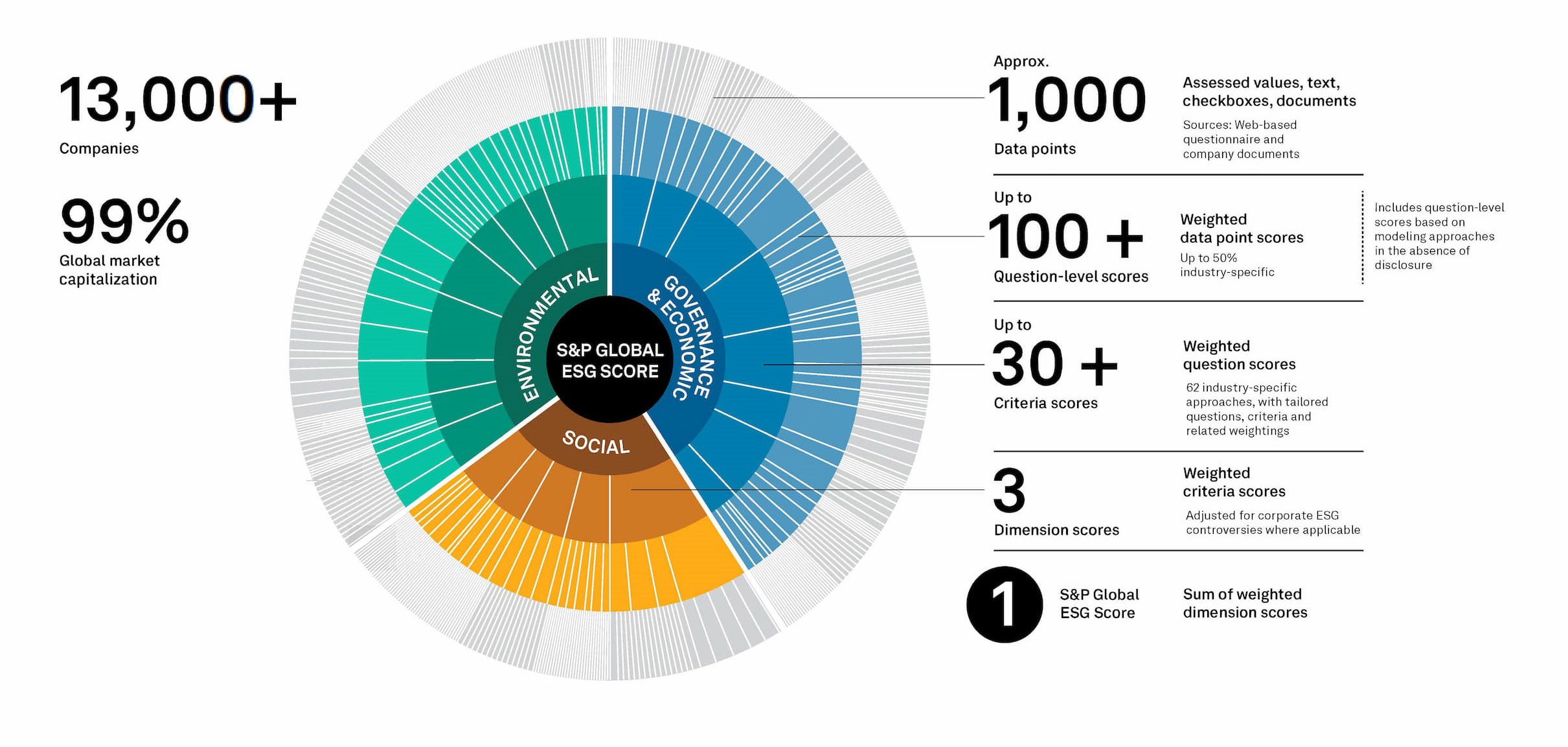-
3,500+
unique data points available for use across 35+ sustainability criteria and themes
learn more -
99%
global market capitalization covered by the CSA research universe of more than 13,000 companies
learn more -
50%
global market capitalization actively participates in the CSA providing in-depth ESG data
learn more -
1,000
transparently disclosed ESG datapoints checked against reliable public sources for every company
-
25
years of connecting business and sustainability strategies with the CSA













